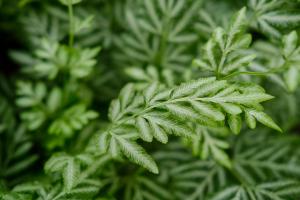Introduction
Water is essential for plant growth and development. Rainwater is a natural and free source of water that can be used to water plants. The use of rainwater is not only environmentally friendly but also economical. In this article, we will discuss how to use rain water for plants.
Collection of Rainwater
The first step in using rainwater for plants is to collect it. Rainwater can be collected from rooftops, gutters, and other surfaces. To collect rainwater, you will need a rain barrel or a similar container that can hold water. The container should be placed at the bottom of a downspout, which will direct rainwater into the container. To prevent debris from entering the container, you can install a mesh screen at the top of the downspout.
Storage of Rainwater
Once rainwater has been collected, it should be stored properly. The container should be covered to prevent mosquitoes and other insects from breeding in the water. Additionally, the container should be positioned in a shaded area to prevent the water from becoming too warm. If the water is stored for a long period of time, it is recommended to add a small amount of chlorine or other disinfectant to the water to prevent bacterial growth.
Application of Rainwater
Rainwater can be used to water plants in a variety of ways. One method is to use a watering can or hose to apply the water directly to the soil at the base of the plants. This method is especially effective for plants that have deep root systems. Another method is to use a drip irrigation system, which delivers water directly to the roots of the plants. This method is especially useful for plants that have shallow root systems or are planted in containers.
Benefits of Using Rainwater
There are several benefits of using rainwater for plants. First, rainwater is free and readily available. Second, rainwater is natural and does not contain any additives or chemicals, making it a healthier option for plants. Third, using rainwater can reduce your water bill and help conserve water resources. Finally, using rainwater is environmentally friendly and helps reduce the amount of runoff that can contribute to flooding and water pollution.
Conclusion
Using rainwater for plants is a simple and effective way to promote plant growth and take care of the environment. With proper collection, storage, and application, rainwater can be a valuable resource for gardeners and homeowners. So next time it rains, consider collecting some rainwater to use on your plants!

 how many times do yo...
how many times do yo... how many planted tre...
how many planted tre... how many pine trees ...
how many pine trees ... how many pecan trees...
how many pecan trees... how many plants comp...
how many plants comp... how many plants can ...
how many plants can ... how many plants and ...
how many plants and ... how many pepper plan...
how many pepper plan...
































